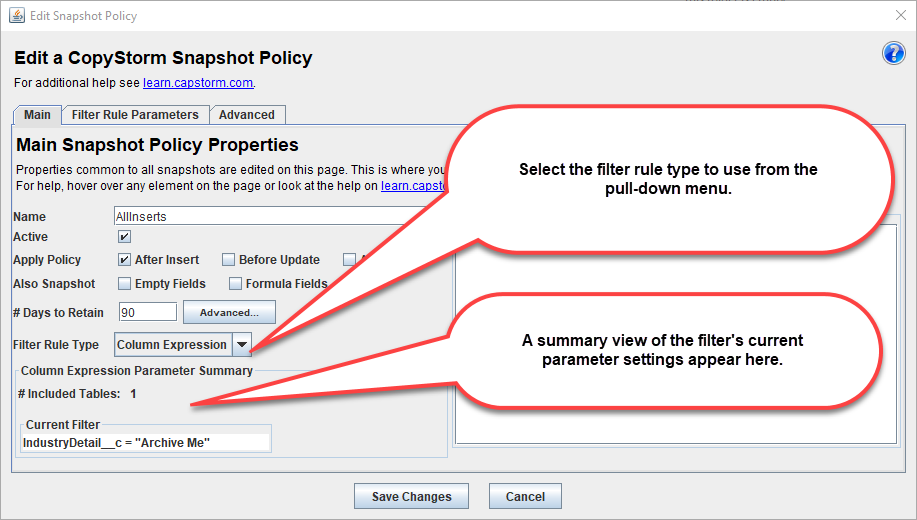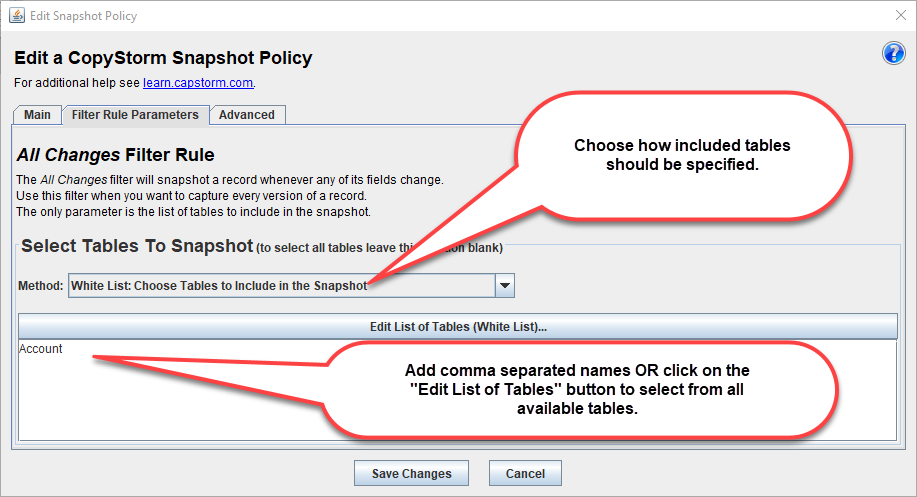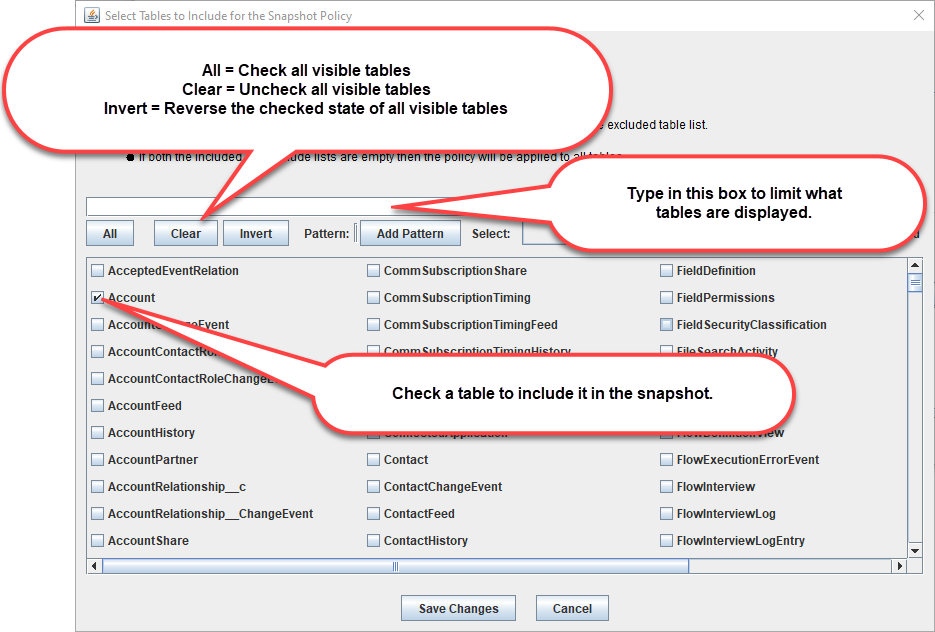Policy Filter Rules
A Snapshot Policy Filter Rule contains the logic which determines if a database record should be processed by the snapshot policy. There are several types of policy filters built into CopyStorm Snapshot.
- All Changes — this filter always indicates that a record should be processed. Use it when all changes to records should be snapshot.
- Column Expression — with this filter a rich expression based on columns in a record can be used to determine if a record should be snapshot.
- Deleted Records — this filter only matches records that have been deleted in Salesforce. This filter is used to build recycle bin type policies.
- SQL Predicate — this advanced filter supports injecting user specific SQL fragments into a query that determines if a record should be snapshot.
The Filter Rule for a Snapshot Policy is specified on the Main Tab of the snapshot editor.
Parameters specific to the selected Filter Rule Type can be set on the Filter Rule Parameters tab.

Nearly all Filter Rule Types support the concept of a White and/or Black list for selecting the tables to be processed by the policy.
- A White List indicates tables to include in the snapshot.
- A Black List indicates tables to exclude from the snapshot. All tables not on the black list will be included.
Typically the technique used for selecting tables for a snapshot is either by White List or Black List. However, if you are brave (and using regular expressions) both a White and Black list may be useful.
The following example (from the All Changes filter rule type) illustrate the components of the White/Black list editor.
- The pull-down menu indicates whether tables should be selected by White list, Black list, or both.

The dialog for selecting tables is nearly the same for a White or Black list. The following example is for a White list.

